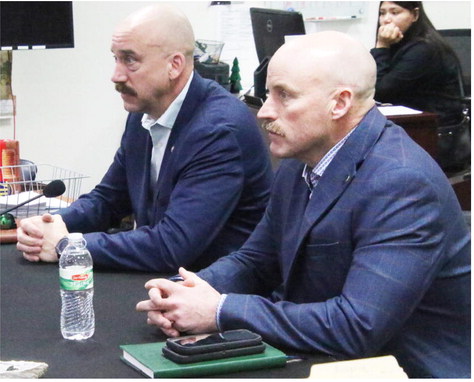Farmers Union Talks Small Producers, Communities
Tariffs, the larger economic state of the country’s agricultural industry and revitalization of the state’s rural communities were all on the docket as the Montana Farmers Union held its annual convention.
The agricultural advocacy organization elected new officers last weekend, including the reelection of president Walter Schweitzer. Montana Farmers Union also recently hired a new executive director, Rachel Prevost, who outlined her priorities as the country’s agricultural industry moves through uncertain waters. Congressional candidate Matt Rains — a former chief of staff for the Montana Farmers Union — spoke during the event, as did former U.S. Sen. Jon Tester, who accepted an award from the organization.
The event also included focus on mental health, highlighted by singer Jason DeShaw who gave a keynote performance and spoke candidly about his struggles with mental health. Suicide rates in rural communities are high and Montana has ranked in the top five in suicide rates for the past 40 years.
Economic winds have been swirling for farmers, as tariffs and high food prices have been a mixed bag. About 20 percent of small farms and ranches have disappeared during the last 10 years, Schweitzer said. The Montana Farmers Union has sought to advocate for small and midsized farming and ranching businesses, with their perspective that monopolistic businesses and corporations are harming small communities.
“We had flour mills in every big town,” Schweitzer said during an interview with the Daily Montanan. “We had packing plants in every big town. We had home delivery milk in every big town, and we had bakeries in every big town, and now we have none of that.”
Prevost, a Carroll College graduate who grew up near Lambert, spoke on the issue as well — the consolidation of small businesses is an issue the Farmer’s Union is looking to address.
“The Farmers Union has taken a really unique approach of looking at the whole local food system in terms of resiliency,” Prevost said during an interview with the Daily Montanan. “So that’s a huge focus we have, our focus on producer- owned co-ops. We’ve got the meat processing co-ops that have been developed. We’re actively looking at other opportunities to really kind of fortify resilient food systems.”
Prevost said other issues she’s focused on include country-of-origin labeling, farm and ranch succession planning, developmental pressures on farms, as well as data privacy.
“When we start looking at corporate monopolization and how that impacts market opportunities, and is there a level playing field?” Prevost said. “We don’t think there is.”
Prevost was involved in 4-H, Future Farmers of America and holds degrees in public relations, communications and political science from Carroll. She started working for the Farmers Union about five years ago, she said, adding it was Schweitzer who reached out to bring her into the organization.
Her family raised cattle and grew wheat, barley and hay.
“Right now feels very like a precipice of a point where, like, farmers and ranchers are like, we’re at the edge and so, you know, having grown up, like, really understanding the impacts of, ‘oh, we got hailed out,’ or we had hail damage, or grasshoppers, or whatever it may be, out in the field, sitting with a member, I can just be empathetic.”
The Farmers Union is also pushing for a new Farm Bill, which they hope will provide market fairness and help strengthen rural communities. The Farm Bill, which is a large collection of agricultural legislation, helps dictate the country’s agricultural policy. The nation’s food production relies on predictability and stability, which some agricultural organizations have said hasn’t been the case during President Donald Trump’s second presidency.
The current government shutdown has also started to impact farmers with Schweitzer saying financial assistance through the Agriculture Risk Coverage and Price Loss Coverage federal programs have caused some to see liens on their checks for loans they’ve already paid off.
“Right now, there’s a whole bunch of checks out there that are nothing but a piece of paper, because you can’t do anything with it,” Schweitzer said. “That’s a real impact.”
The Montana Farmers Union also elected new board members, including John Wicks from Ledger, who will serve a three-year term.
Incumbents Mark Siderius from Kalispell and Ben Peterson from Judith Gap were elected to retain their current seats for three-year terms.

